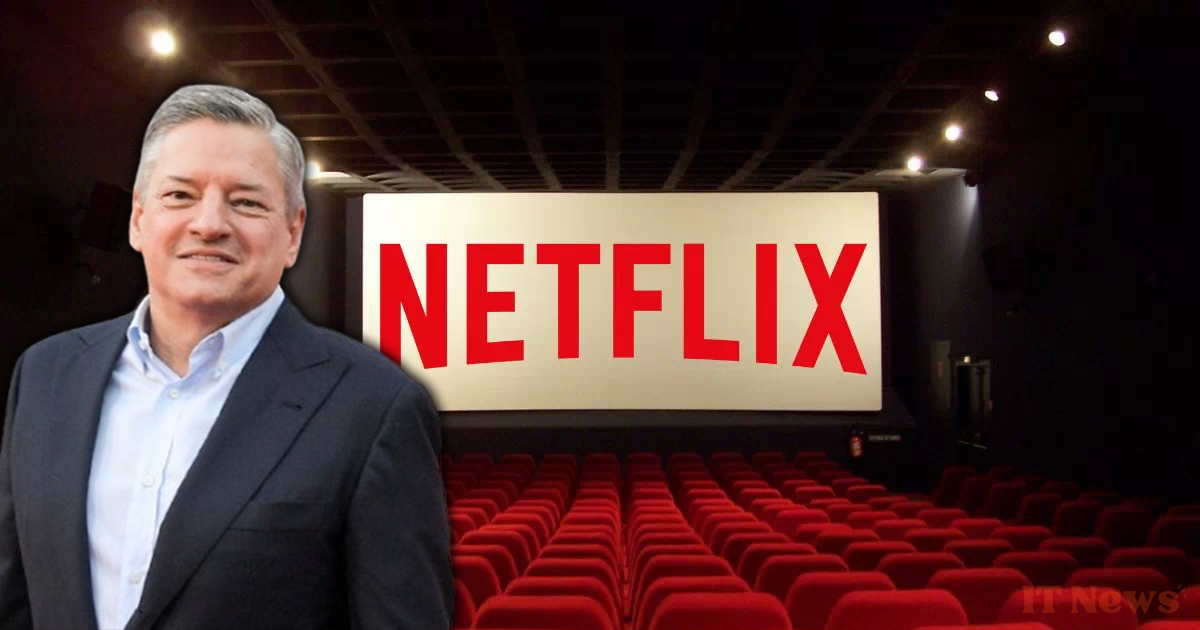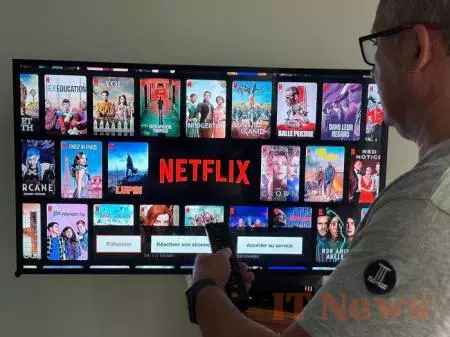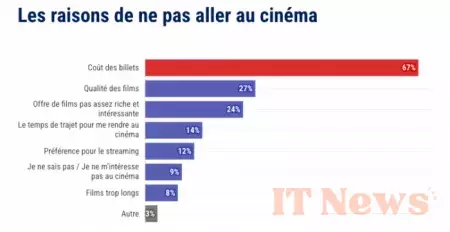It's the world upside down. While movie theater aficionado Quentin Tarantino is preparing to "make a pact with the enemy" for the sequel to Once Upon a Time in Hollywood, which will be released on Netflix, the streaming platform is now attacking movie theaters. The company's co-CEO, Ted Sarandos, has just made a statement that isn't going down well with moviegoers... And it's not necessarily true. Analysis.
Netflix proclaims itself the "savior" of Hollywood
Yes, just that! According to our colleagues at Deadline, the company's co-CEO, Ted Sarandos, declared that the streaming platform is "saving Hollywood" because it meets the needs of the consumer. For the businessman, audiences no longer attach as much importance to watching in movie theaters, and prefer to enjoy the comfort of their homes to watch a film.
No, we are saving Hollywood. [Netflix] is a very consumer-driven company. We deliver the program to you the way you want to watch it. What is the consumer trying to tell us? That he would like to watch movies at home. I think [theatrical release] is an outdated idea, for most people - but not for everyone.
Cinema VS Streaming: And in the numbers?
For over a decade, Netflix has been offering original series and films, broadcast exclusively on their site. The streaming platform's catalog offers a wide range of pre-existing works, but it's the variety and appeal of new releases that make consumers subscribe, and stay. Since the Covid-19 pandemic in 2020, these audiovisual consumption models have become the norm, but they are nevertheless becoming less and less affordable, with Netflix having just increased the price of its subscriptions again.
According to the study Ipsos published in January 2025, 7 out of 10 French people have at least one paid subscription, and 9 out of 10 for those under 35. According to another recent study, 54% of French people go to the movies three or more times a year, preferring comedies, action films, and thrillers. In the United States, total box office revenue has fallen significantly over the past ten years: from over $11.1 billion in 2015 to $8.5 billion in 2024. In Europe, we went from 7.2 billion euros in 2015 to 6.6 billion euros in 2024.
Is streaming the consequence or the reason for the decline in cinema attendance?
It's the eternal debate between cause and consequence. On social media, users were outraged by Ted Sarandos' statement: "Nothing beats watching a movie in a theater, long live the movie experience," "Yeah, a $250 million budget for The Electric State and it's one of the worst-rated movies of 2025 so far... But in a way, that's saving Hollywood," "Netflix saving Hollywood? It's more about killing movie theaters. Not everything needs to be watched in your pajamas."
Nevertheless, it's clear that several factors explain why viewers are choosing streaming over movies. In the Ipsos survey above, we clearly see that the price of tickets is the main obstacle to not going to the cinema. Over the past 10 years, the average price of cinema tickets has increased drastically, with a difference between Paris and provincial towns. If you take the CGR in Brest, the full-price ticket is 10.60 euros. At the UGC Ciné Cité Les Halles in the capital, the full-price ticket is 15.90 euros.
Ile-de-France - He saves his whole life to be able to afford a screening at UGC Ciné-Cité Les Halles. pic.twitter.com/R693Us13JS
— PoiloCiné (@Poilocine) July 26, 2018
In both cases, without a discount, this still represents an expense of between 10 and 16 euros, for an experience lasting around two hours. In a period of inflation where everyone is careful about their spending, this is not a negligible sum. On the other hand, price aside, the French are far from preferring streaming to movie theaters, barely 12%. Events like the Printemps du Cinéma, where tickets cost 5 euros, are therefore a welcome boost for the box office. In our opinion, it is the advent of streaming that has revolutionized audiovisual consumption habits, but cinema is far from dead: it just needs, like other sources of entertainment, to become an accessible leisure activity again...
And you, what do you think?









0 Comments